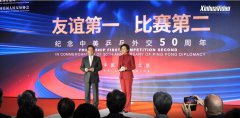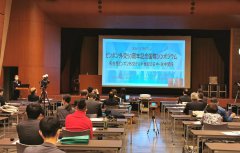Home>>
50 years on, Ping-Pong Diplomacy shows lasting value(Xinhua) 09:59, April 11, 2021
-- 50 years ago, a chance encounter between paddlers from China and the U.S. previewed the "Ping-Pong Diplomacy" that led to the normalization of bilateral ties.
-- Withstanding the changes in China-US relations for half a century, "Ping-Pong Diplomacy" still has profound implications in an ever-changing world.
By Xinhua writers Su Bin, Yang Kai and Xu Dongyuan
BEIJING, April 10 (Xinhua) -- It has been half a century since China invited the U.S. table tennis team for a historic visit, and "Ping-Pong Diplomacy" still has profound implications in an ever-changing world.
On Saturday, a special event was staged in Shanghai in commemoration of the 50th anniversary of "Ping-Pong Diplomacy."
"The Ping-Pong Diplomacy of 50 years ago is of special significance in the history of China-U.S. relations," Chinese Ambassador to the United States Cui Tiankai said in a video speech to the event.
"The little ball moves the big ball" is a phrase that Chinese people often use when referring to that historical period, where table tennis became an unlikely diplomatic tool. 50 years later, the little ball is still moving in developing ties between different countries.
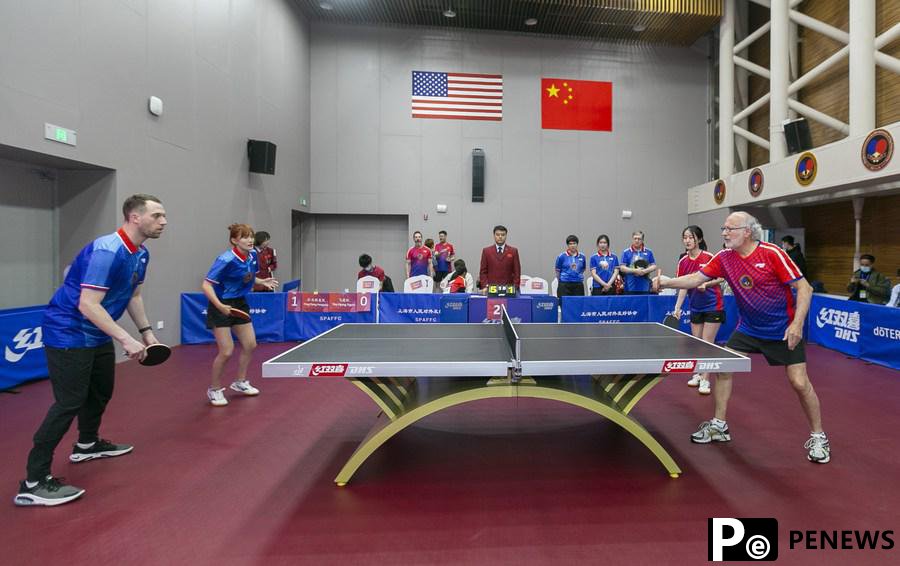
Players from China and the United States take part in a friendly match to commemorate the 50th anniversary of the Ping-Pong Diplomacy at the International Table Tennis Federation Museum in Shanghai, east China, April 10, 2021. (Xinhua/Wang Xiang)
A CHANCE ENCOUNTER MADE HISTORY
The story of a chance encounter between deceased world champion Zhuang Zedong and American paddler Glenn Cowan on April 4, 1971 has been heard and repeated by many.
After finishing his training session during the 31st World Championships in Nagoya, Japan, Cowan found himself aboard a bus with the Chinese team members on his way to the venue, a complicated scene in a period featuring a Cold War gulf between the two countries.
Despite other members' worried response, Zhuang stood up and reached out to Cowan. The world champion communicated with Cowan and gave him a piece of tapestry satin as a gift.
A handshake between the two off the bus was captured by journalists on site, and related pictures soon hit the headlines on local newspapers.
"He (Zhuang) did a meaningful thing in the right way at the right time," commented the ITTF honorary president Xu Yinsheng, who coached the Chinese team then.
At the invitation of the Chinese delegation, a flight with the U.S. table tennis team on board landed at the Beijing airport on April 10, 1971. They became the first U.S. group to visit since the founding of the People's Republic of China in 1949. The U.S. team played exhibition games with Chinese counterparts in Beijing and Shanghai.
Sun Qilin, a former world championships chief umpire and professor from Shanghai Jiao Tong University, had a vivid impression after watching the exhibition game in Jiangwan Gymnasium in Shanghai's Yangpu District.
"The air in that game was alive. 'Ping-Pong Diplomacy' motivated all Chinese people, and made huge contributions to bringing China and the U.S. closer. Through table tennis, a gate for friendly exchanges was opened," said 71-year-old Sun, who led the Chinese team to several World University Games and Championships as either a coach or a team manager.
The Chinese team paid a return visit the next year. The mutual visits broke the ice in two decades of estranged Sino-U.S. relations and eventually led to the normalization of bilateral ties.
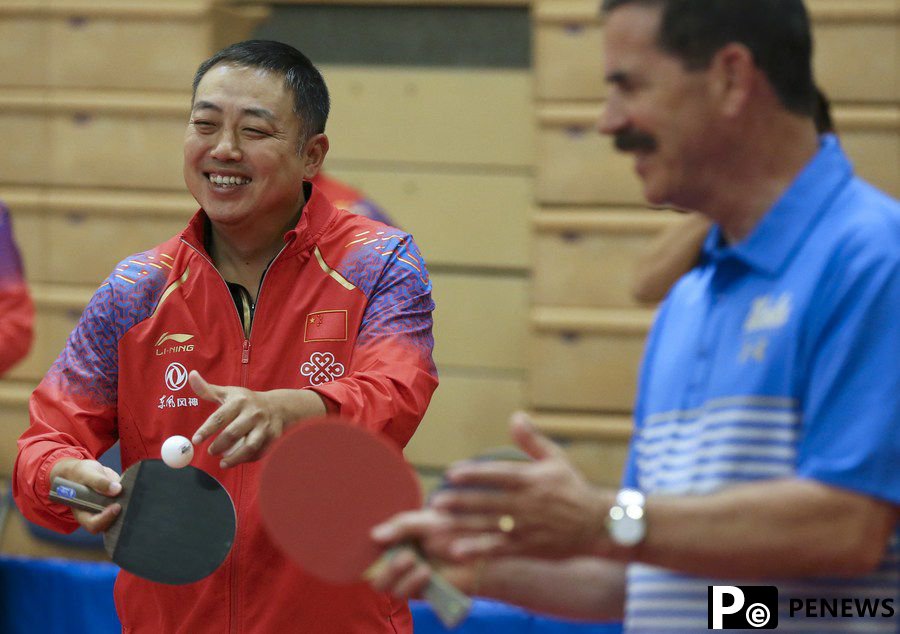
Liu Guoliang (L), president of the Chinese Table Tennis Association, serves the ball during a joint training session between the Chinese and U.S. national table tennis teams in Orange County, California, the United States, Aug. 17, 2019. (Xinhua/Li Ying)
UNCHANGED IN A CHANGING WORLD
"Chinese table tennis is shared with the world," said the sport's legend Liu Guoliang after being appointed the Council Chair of World Table Tennis (WTT) in 2020.
China is a dominant force in table tennis, claiming 28 out of 32 gold medals since the sport was introduced to the Olympic Games in 1988.
The table tennis link between China and the U.S. is not only about commemoration activities, but also technique exchanges on the court.
During the 2019 World Championships in Budapest, four Chinese players, including Grand Slam winners Ma Long and Ding Ning, conducted a joint practice with their American counterparts in the venue.
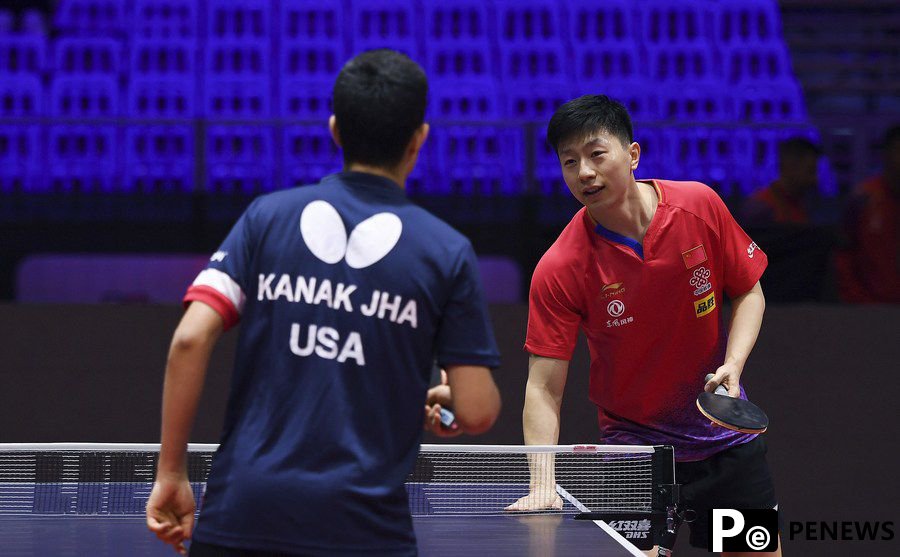
Ma Long (R) of China and Kanak Jha of the United States communicate with each other during a joint practice session at the 2019 ITTF World Table Tennis Championships in Budapest, capital of Hungary, April 19, 2019. (Xinhua/Tao Xiyi)


